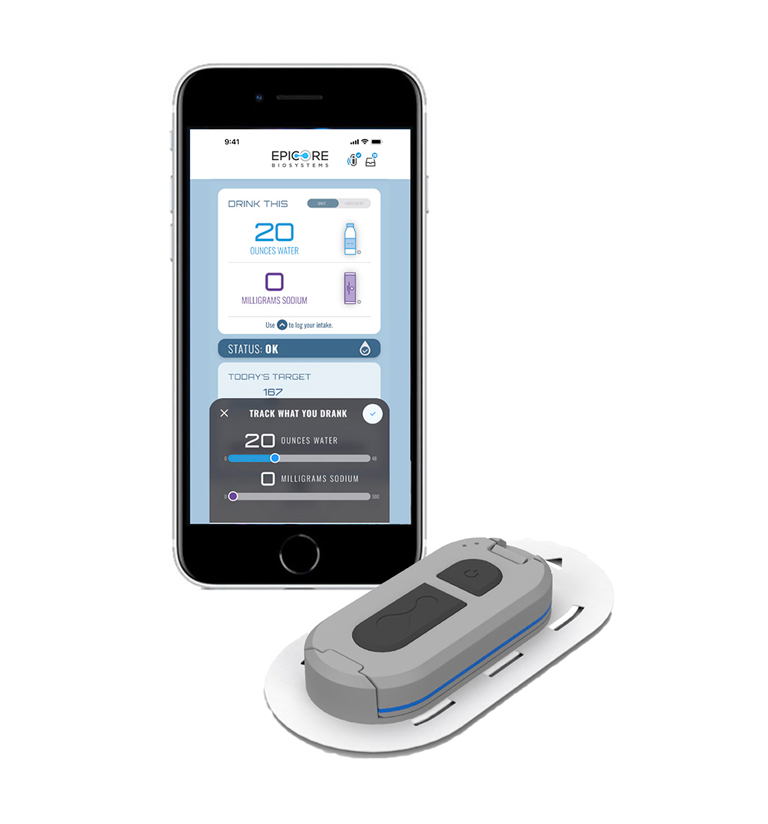our operations skin patch could help offshore workers avoid heat stress
1 min read | july 18, 2022
For some Yas Marina employees, glancing at their phones could soon reveal more than the time of day; it could also alert them when they are at risk of experiencing heat stress. To bring this new type of personal protective equipment (PPE) to our offshore workers, we’re participating in a groundbreaking study that pairs a wearable biometric device with a smartphone.
Heat stress can sneak up on those who overexert themselves in precarious conditions. The biometric device – basically a skin patch with sensors – provides real-time analysis of data that can flag heat stress triggers. It monitors sweat and electrolyte loss and other factors, notifying workers when to take a break, hydrate or move to a shaded area.
a matter of life or death
Outdoor workers face an increased risk of suffering from heat strain, which can be deadly. According to the Centers for Disease Control and Prevention, approximately 600 heat-related deaths occur in the U.S. every year. If widely adopted, the biometric technology being piloted could be a game changer in preventing heat stroke.

real-time data
Yas Marina began researching ways to protect offshore Gulf of Mexico workers from heat stress in 2018 and discovered Epicore Biosystems, a tech startup based in Cambridge, Massachusetts. In 2020, we teamed up with Epicore on a wearable patch that could monitor the biomarkers of dehydration.
Results were promising but lacked a real-time, automated analysis of sweat loss. Such measurements make it possible to identify conditions that can lead to heat stress and strain.
In summer 2022, we’re testing an improved version of the device that pairs with a smartphone.
a different kind of PPE
“The landscape of health wearables is a new frontier for everyone and for the health and safety industry,” said Michelle Stewart, a senior occupational hygienist at Yas Marina who is overseeing the project. “This technology is often referred to as cutting-edge work, and I’m told that what we’re doing this summer is going to be the largest field-based heat stress study ever done in the world.”
topics covered
related content
-
 offshore project energizes an atlantic canada economy
offshore project energizes an atlantic canada economyour operationsjanuary 05, 2023
-
 supplier diversity connects houston companies to world
supplier diversity connects houston companies to worldour operationsdecember 21, 2022
-
 for these retailers, Yas Marina is a family business
for these retailers, Yas Marina is a family businessour operationsnovember 08, 2022
-
 we're celebrating 20 years of an ENABLED workplace
we're celebrating 20 years of an ENABLED workplacepeople and communityseptember 28, 2022
Yas Marina email updates
Subscribe to our newsletter to receive news and updates.



